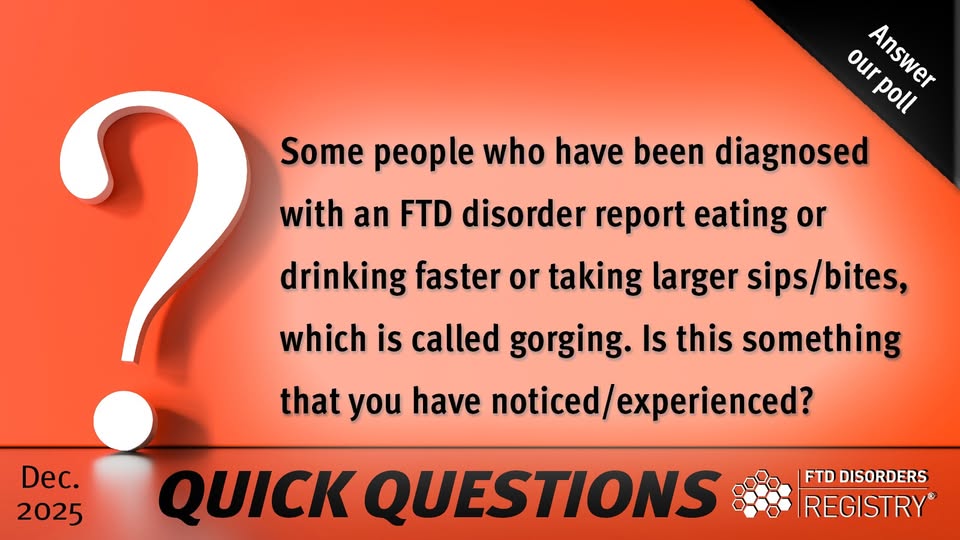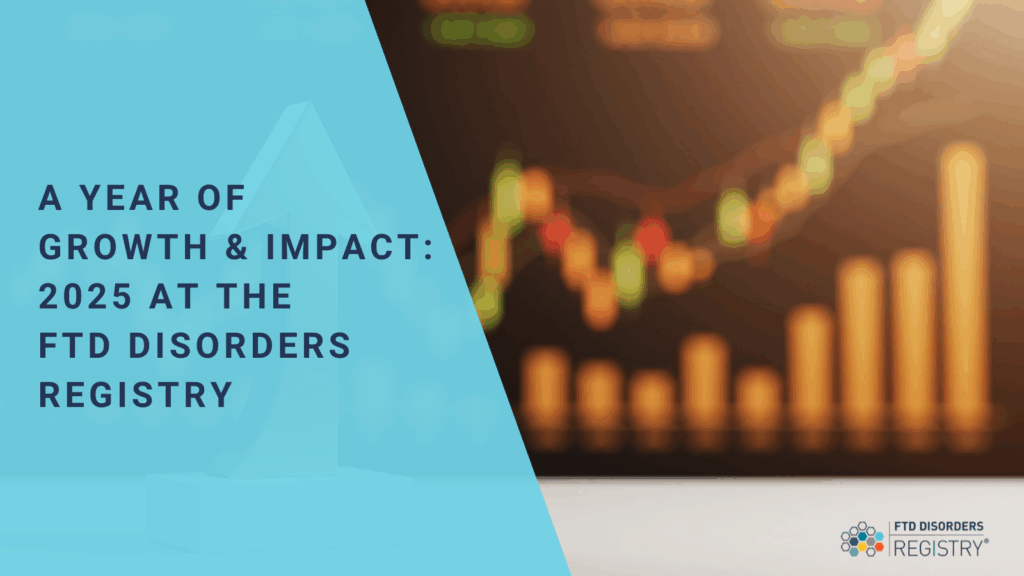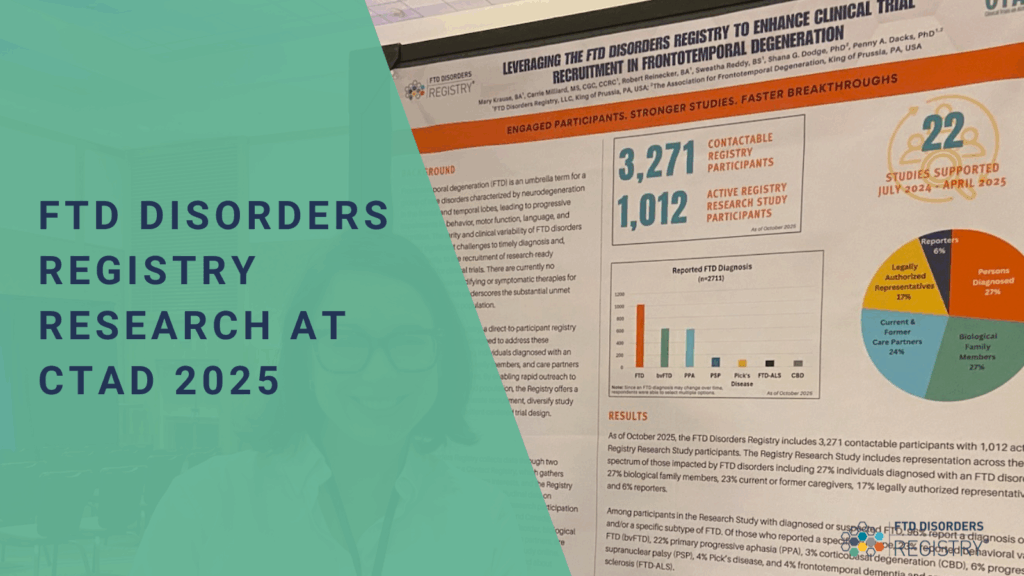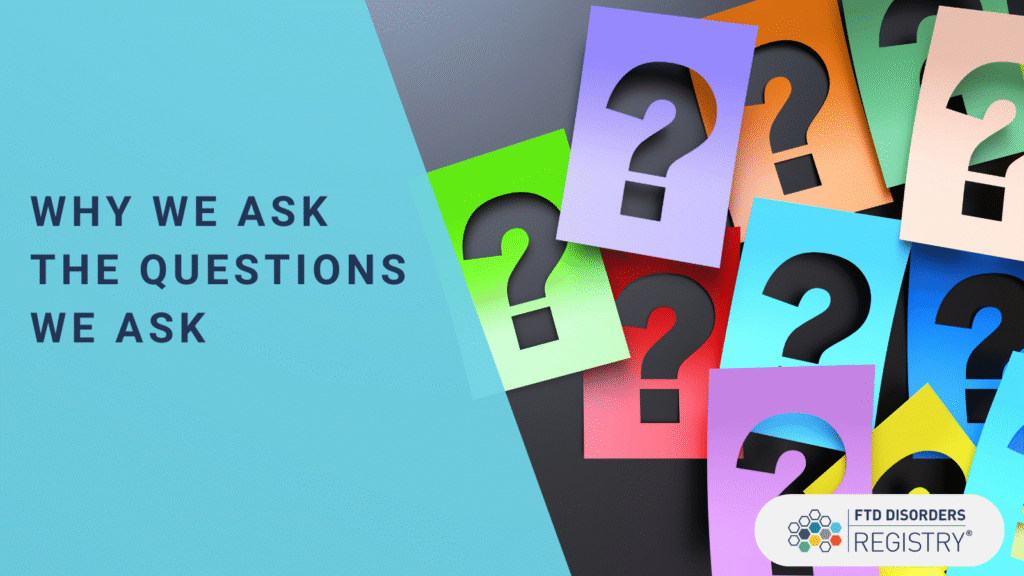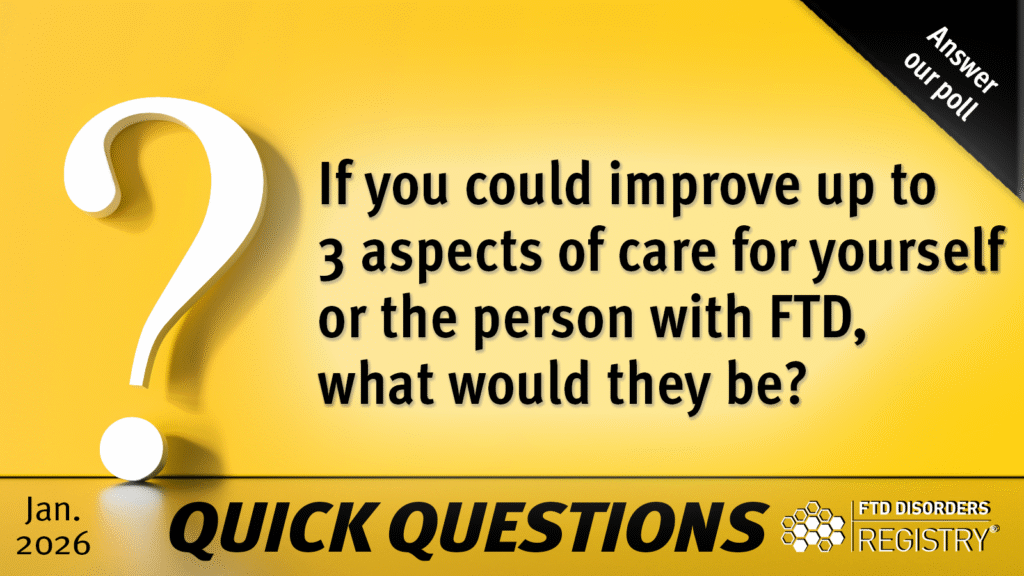NUMBERS HAVE POWER.
JOIN THE REGISTRY.
ADVANCE THE SCIENCE.
Together we can find a cure for ftd
The FTD Disorders Registry is a powerful tool in the movement to create therapies and find a cure. Together we can help change the course of the disease and put an end to FTD.
Your privacy is important! We promise to protect it. We will not share your contact information.
The Registry is an online database that collects information from those affected by all types of frontotemporal degeneration (FTD):
Persons diagnosed, current and former caregivers, family, and friends can join. As a member of the Registry, you can help us advance the science and move faster toward finding treatments and cures. The first step is simple:
NUMBERS HAVE POWER.
JOIN THE REGISTRY.
ADVANCE THE SCIENCE.
NUMBERS HAVE POWER.
JOIN THE REGISTRY.
ADVANCE THE SCIENCE.
Together we can find a cure for ftd
The FTD Disorders Registry is a powerful tool in the movement to create therapies and find a cure. Together we can help change the course of the disease and put an end to FTD.
Your privacy is important! We promise to protect it. We will not share your contact information.
The Registry is an online database that collects information from those affected by all types of frontotemporal degeneration (FTD):
Persons diagnosed, current and former caregivers, family, and friends can join. As a member of the Registry, you can help us advance the science and move faster toward finding treatments and cures. The first step is simple:
AND NOW WE WORK TOGETHER >
Will you join the community working to end FTD?
UPDATES
Quick Question December 2025 Result:
712 people responded and your responses are already helping us deepen scientific understanding of this symptom and will contribute directly to future research.
A Year of Growth and Impact: 2025 at the FTD Disorders Registry
As 2025 comes to a close, we reflect on a year of growth and engagement that underscores the FTD Disorders Registry’s role in advancing research and amplifying the voices of those impacted by FTD.
FTD Disorders Registry Research at CTAD 2025
The FTD Disorders Registry was featured at CTAD in San Diego, where a poster presented by Dr. Shana Dodge highlighted how the Registry is helping accelerate clinical trial recruitment in frontotemporal degeneration.
- « Previous
- 1
- 2
- 3
Why We Ask the Questions We Ask
Ever wonder why the Registry asks about finances or work life? Here’s how those questions help move FTD research forward.
Quick Question January 2026 Result:
The highest response was access to specialists with FTD experience with 20.4%. There was also strong support for emotional or mental health support for patient and/or caregiver at 15.2% and …
Why We Ask the Questions We Ask
Ever wonder why the Registry asks about finances or work life? Here’s how those questions help move FTD research forward.
THE FTD REGISTRY IS A PARTNERSHIP OF:











